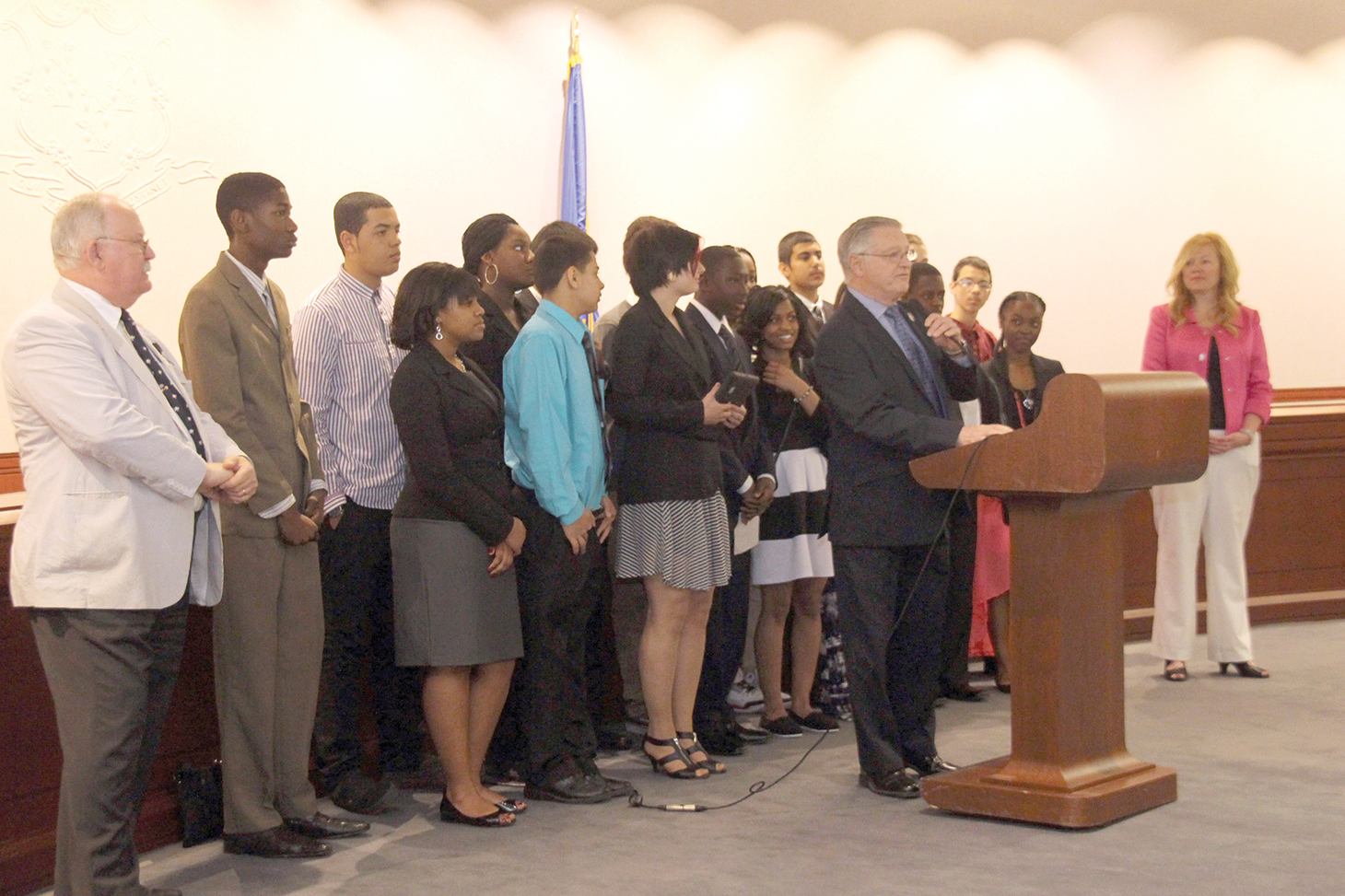
Dear Friend,
It has been my pleasure to be your voice in Hartford during the 2016 Session of the General Assembly. Here at the legislature, we are responsible for writing laws and determining policies that govern the State of Connecticut.
As a taxpayer and consumer, I understand the need for efficient government. As a legislator, I know our duty is to protect children, assist our elderly in health care and housing, provide for public safety and create a positive climate for businesses and workers alike.
I did vote for the budget because it contained increased funding for East Hartford. In an effort to help our school system, East Hartford will receive $915,000 in state funding due to the large number of students attending magnet schools out of town. The plan will create more opportunities for more children to attend magnet schools. As your state representative, I will work hard to make the changes we need to make life better for all of us in East Hartford.
This newsletter will bring you up to date on what we did regarding some of these issues. Thank you once again for the opportunity to serve as your state representative. I look forward to continuing my efforts on your behalf in the future.
Sincerely,


Connecticut Jobs
This year we made economic growth and support for small businesses a priority. Here are some of our 2016 initiatives:
Entrepreneur Support Programs – provides $5 million a year to support a range of needs for entrepreneurs, such as residencies, coworking space and mentoring.
Tech Talent Development Fund – 10 year goal to at least double Connecticut’s stock of software developers and other tech talent we’re short on. Tactics will include: recruitment from out of state, upskilling or reskilling current workers in other fields, and bolstering education programs in this field.
Added Support for Growing Small Businesses - $1 million a year for 5 years to support firms that have made it past the startup phase, and mature companies that have the potential to grow.
University Innovation Ecosystems - $10 million of seed funding to strengthen the innovation and entrepreneurial ecosystems at all of Connecticut colleges and universities, public and private.
Connecticut 500 Project - main goals are to create a net increase of 500,000 private sector jobs over the next 25 years; increase the state’s population by 5,000 new residents; create 500 new startup businesses; increase by 500 the annual number of students graduating from state colleges and universities; and maintain Connecticut’s top five ranking with respect to productivity, higher education and per capita income.
Budget Cuts
Although there were no easy solutions this year, after a lot of hard work we approved a budget that is balanced, without tax or fee increases, without borrowing and without dipping into the Rainy Day Fund. Cutting $830 million is painful, but these long-term structural changes will help put Connecticut’s budget on a sustainable path – not just this year, but into the future.

Supporting Our Seniors
Taking care of our older citizens is a priority. We passed legislation to make sure patients are notified of their rights and available services when nursing homes or long-term care facilities close or reduce the number of beds. We also required nursing homes to allow residents being discharged to pick a caregiver to help them with their discharge plan. Other legislation allows for elderly or disabled tenants of state-assisted housing to pay security deposits in installments.
Ending the Sales Tax On Parking in State Parks
Helping municipalities to meet their budgetary needs and keeping taxes in check have always been priorities – this measure accomplishes both. To relieve the cost associated with collecting the current sales tax on parking fees, we exempted seasonal parking lots with over 30 spaces or parking lots operated by the federal or state government from the sales and use tax. This not only aids the municipalities, but also will save consumers money.

Regional Performance Incentive Program
Regional Performance Incentive Program (RPIP) grants provide funds to municipalities and regional entities for jointly performing a service, conducting a study on joint service provisions, or sharing information technology services. The bill expands eligibility for RPIP grants – promoting regionalism and efficiency. Grants will be provided to municipalities to promote shared services and combined back office functions between municipalities and boards of education. Consolidating these services will result in greater savings to taxpayers.
Tackling the State’s Opioid Epidemic
In recent years, Connecticut, like other New England states, has seen a heartbreaking increase in fatal opioid overdoses. Earlier this year we passed groundbreaking legislation to combat this crisis. This lifesaving law will allow any licensed healthcare professional to administer drugs that reverse opioid overdoses, require municipalities to equip their first responders with the opioid reversal drug Narcan, and cap first-time opioid prescriptions at a seven-day supply.

Standing Up for Veterans
We stand by our veterans. The legislature passed measures that will facilitate veteran employment with a resource network for specialized skills in the Department of Labor and preferences in state contract bidding for veteran-owned small businesses. We also broadened the scope of the law that bars discriminatory practices in our state’s armed forces, and approved a resolution to our nation’s leaders to recognize Blue Water Navy Veterans’ exposure to Agent Orange.
Animal Cruelty
This year, we sent a message that animal cruelty will not be tolerated in Connecticut. We passed legislation that makes malicious and intentional animal cruelty a class C felony, which carries the potential of jail time or a fine of up to $10,000. The legislature also approved a law that aims to increase animal cruelty conviction rates by allowing judges to appoint volunteer legal advocates to assist prosecutors in animal cruelty cases.
Supporting Connecticut’s Growing Manufacturing Sector
The manufacturing industry is making a comeback and we are working to ensure a strong and educated workforce for the increasingly high-tech jobs of the future. In order to meet the growing demand of manufacturers, we established a committee that will educate middle and high school students about careers in manufacturing, provide manufacturing training, and study workforce needs to introduce students and their parents to careers in manufacturing.





